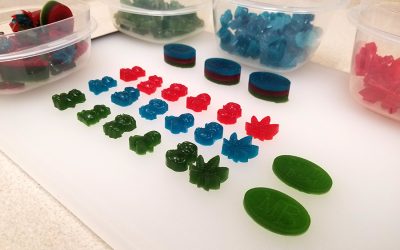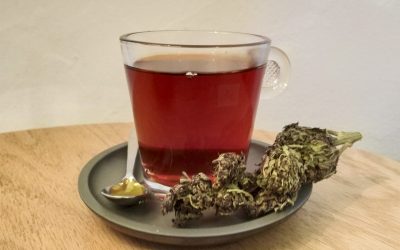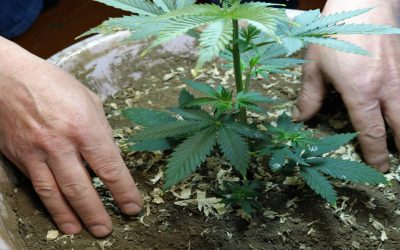The time it takes for edibles to begin affecting varies depending on their dosage and how they are consumed. Typically, edibles ingested orally take longer to have an effect compared to those absorbed in the mouth, such as lozenges.
How long do edibles take to kick in? Edibles refer to a range of cannabis-infused food products like gummies and brownies, which contain THC and/or CBD. As marijuana legalization expands, the popularity of edibles increases. CBD-only options hold promise in managing conditions like anxiety and chronic pain, providing a safer alternative to smoking.
Edibles offer a unique experience compared to other cannabis products, often resulting in a more intense and prolonged high. Despite their slower onset compared to smoking or vaping, various factors influence how long it takes for edibles to take effect.
How long do edibles last? Keep reading to discover more about edibles, including their onset duration, duration of effects, recommended dosage, potential side effects, and precautions.
Timing of Edibles’ Effects: When Do They Kick In?
Edibles typically take 30 to 60 minutes to kick in, but this can vary due to several factors.
The onset time depends on the potency of the active ingredients, with higher THC concentrations leading to quicker effects.
CBD-only edibles don’t cause a psychoactive “high,” making it harder to notice when they take effect.
The method of absorption in the body also affects onset time. Products absorbed under the tongue, like lozenges and gum, work faster than those digested, such as gummies.
Other factors like diet, metabolism, sex, weight, and cannabis tolerance influence how quickly the effects are felt.
Since edibles don’t work immediately, it’s important to avoid taking more shortly after the initial dose to prevent overconsumption. Waiting at least 24 hours before another dose is recommended.
How Long Do Edibles Stay Active?
Edible highs typically last longer than those from smoking or vaping, often spanning from six to eight hours.
After consuming THC-infused edibles, peak blood levels usually occur around three hours later, indicating the time of most intense effects.
How long do edible highs take? The duration of an edible high depends on several factors like dosage, potency, and how it’s ingested. Generally, chewing edible products tends to extend the high compared to orally absorbed ones.
Personal factors such as metabolism, weight, and tolerance also play a role in how long the effects persist.
However, accurately predicting the duration of edible effects can be difficult. A 2016 study analyzing numerous tweets about edibles highlighted the common experience of unpredictability in their duration.
Edible Varieties Simplified
Edible offerings exhibit vast diversity and are consistently evolving. Common categories of edibles include:
- Baked delights: like brownies, cookies, biscuits, and waffles.
- Confectionery items: encompassing gummies, chewing gum, lozenges, lollipops, chocolates, truffles, fruit bars, and marshmallows.
- Beverage selections: ranging from coffee, hot or iced tea, soda, energy drinks, beer, wine, to alcoholic beverages.
- Miscellaneous products: such as jerky, butter, sugar, and syrups.
How to Figure Out the Right Amount to Take
When do edibles peak? Many edible cannabis products specify the quantity of THC or CBD in one serving. For instance, a single gummy usually contains 10 milligrams (mg) of THC.
However, there are instances where the manufacturer lists the THC or CBD content for the entire package or food item. Take the example of gummies: a package might contain 100 mg of THC, meaning each gummy contains 10 mg.
This can be perplexing with items like brownies and cookies, where one dose might constitute only a portion of the item.
Always scrutinize the label before consuming the product. Check for the THC or CBD content per serving and ascertain if the serving size pertains to the whole product or just a fraction.
Even armed with this information, estimating edible dosages isn’t always precise due to various factors. It’s advisable to commence with a small dose and gradually increase until reaching the desired effect.
Below are some general dosing suggestions for THC and CBD edibles.
THC Dosage
The tolerance to THC varies between smoking and consuming edibles, with edible THC often leading to stronger effects.
According to a 2015 report from the Colorado Department of Revenue, consuming 1 mg of THC through edibles can have a behavioral impact similar to smoking around 5.71 mg of THC.
Even if you’re accustomed to smoking cannabis regularly, it’s wise to start with a small edible dose and gradually increase until achieving the desired effects.
Taking doses exceeding 20 to 30 mg per day is associated with a heightened risk of negative effects, including dependency.
CBD Dosage
Because CBD doesn’t cause psychoactive effects, the risk of overdosing is lower. However, high doses can still result in undesired effects like fatigue.
Starting with a small CBD dose is recommended, similar to THC edibles. Begin with a low dosage ranging from 2.5 to 10 mg of CBD, then adjust gradually until reaching the desired effects.
Due to the potential for CBD to induce drowsiness, taking it in the early evening is advisable until you understand its effects on your body.
The Perks of Eating Edibles
Cannabis-infused edibles offer unique advantages compared to smoking. These include:
- Reduced respiratory risks: Unlike smoking, which involves inhaling cannabis smoke containing carcinogens, edibles bypass this risk as they do not require burning marijuana.
- Extended duration: Edibles provide longer-lasting effects compared to smoking or vaping, making them beneficial for individuals seeking sustained relief from symptoms, particularly medicinal users.
- Convenient accessibility: Consumption of edibles can be done indoors without the need to step outside. This accessibility is particularly advantageous for individuals who cannot smoke or prefer a discreet method of consumption.
- Discreet usage: Edibles can be consumed inconspicuously, akin to taking medication, without emitting the characteristic odor associated with smoking. This discretion is valuable for medicinal users who may need to consume cannabis in environments where smoking is prohibited, such as the workplace.
Possible Adverse Effects
The impacts of ingesting THC or CBD-infused edibles differ depending on the active substance.
For THC-Infused Edibles
Consuming large amounts of THC-infused edibles can result in discomfort that persists for hours to days, a phenomenon known as “greening out” or a cannabis overdose. Symptoms may include:
- Impaired cognitive function
- Decreased coordination
- Intense sleepiness
- Feelings of restlessness and anxiety
- Increased heart rate
- Nausea and vomiting
- Distorted sensory perception
- False beliefs
- Episodes of psychosis
For CBD-Infused Edibles
As per a 2017 review, typical side effects of CBD consumption include:
- Tiredness
- Gastrointestinal problems such as diarrhea
- Changes in appetite
- Fluctuations in weight
Further research is required to comprehend both short- and long-term effects of CBD usage.
More Things to Consider
When buying edibles, it’s vital to carefully evaluate the manufacturer.
Typically, reputable makers of edibles are transparent about what’s in their products and the recommended doses. A trustworthy seller should be open to answering your questions without pressuring you to buy.
However, it’s not always possible to be certain about what you’re getting. A study carried out in 2015 looked at how accurately dosing and labeling were done across 75 different products.
After analyzing the THC levels in these products, researchers found that only 17 percent had accurate labeling. Among those with mistakes, 23 percent had more THC than stated, while 60 percent had less.
When to Seek Medical Guidance
Edibles might interact with medications and other supplements. If you’re thinking about trying them, it’s wise to consult a doctor. In places where edibles are legal, a doctor might be able to recommend the right dosage or brand.
Edibles can take several hours to have an effect. If you’ve already had a dose, wait at least 24 hours before taking more to avoid potential negative effects.
For those new to edibles, start with a small dose and gradually increase it until you achieve the desired result.
Is CBD Legal Nowadays?
The 2018 Farm Bill removed hemp from the legal definition of marijuana under the Controlled Substances Act. This made some CBD products derived from hemp with less than 0.3% THC federally legal. However, CBD products with more than 0.3% THC are still considered marijuana, making them illegal at the federal level. While some states have legalized CBD, it’s crucial to check state laws, especially when traveling. Also, be aware that non-prescription CBD products lack FDA approval, and some may have inaccurate labeling.











0 Comments